“Despite the food insecurity, the locals’ hospitality is truly inspiring. In the villages, neighbors share resources, address one another as brothers and sisters, and care for each other’s entire families and relatives.”
My name is Mauriah Weller, and I am a student from the Netherlands studying International Development. I recently completed data collection for my bachelor’s thesis on farmers’ food insecurity in Jumla, a mountainous district of Nepal. HERD International, a research organization with its central office in Kathmandu, facilitated my fieldwork as they have a field office in Jumla and are actively involved in implementing research projects related to climate change, nutrition, and livelihoods. During my two-month stay in Nepal, from April to May 2023, I aimed to understand the livelihood strategies of farmers and how they cope with the challenges of obtaining sufficient food for their families.
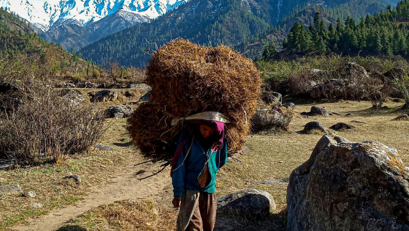
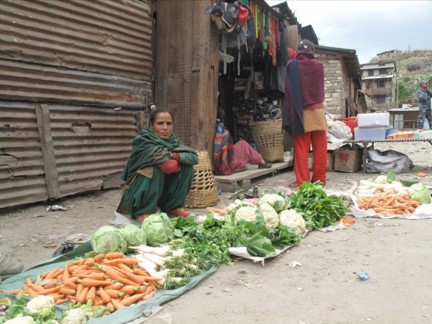
Throughout my research, I conducted 30 interviews with the assistance of a young female Nepali translator who provided valuable insights into the local culture. Together, we visited both subsistence farmers and small-scale commercial farmers in the Chandannath municipality of Jumla. This allowed me to explore the captivating and distinct way of life in the rural areas of Nepal, as we visited all the wards of the municipality.
One aspect that stood out to me during my time in Jumla was the captivating landscape and the intriguing weather conditions. Despite needing to wear a winter jacket, I experienced intense sunburn on my hands and face as well. Interestingly, the frigid temperatures required multiple layers of clothing indoors and during the night. Just a one-hour walk outside of Chandannath center revealed a breathtaking view of the snow-covered Himalayas.
The diverse geographical conditions in Jumla, although beautiful, expose the local population, particularly those working in the agricultural sector, to various disasters. The increasing frequency of these disasters has made it challenging for many individuals to secure their livelihoods. Ensuring they can work in the fields, achieve the necessary yield, provide sufficient food for their families, and generate income from selling their produce has become an increasingly more difficult task.
In Europe, we are accustomed to a lifestyle where supermarkets offer a wide variety of food, and we heavily rely on external factors. When we need repairs or any services, for example, gardening or in the household, we hire professionals. However, in Jumla, most people rely on their own knowledge and resourcefulness to construct their houses, maintain their gardens, and fix any assets. They share skills with their neighbors and possess a robust social network, which is uncommon in Europe. This deep sense of community and the strong bonds among locals was heartwarming to witness and is also crucial for their survival in the face of numerous challenges.
The openness and willingness of Jumli people to share their way of life provided me with profound insights into the differences that exist between countries. I had the opportunity to engage in conversations with the farmers about their traditional agricultural practices. It was fascinating to learn about their age-old techniques passed down through generations and the wisdom on organic farming methods, for instance how to produce natural fertilizer and pesticides through herb mixtures. Despite facing various challenges related to their economic status, I felt that the people in Jumla are resilient due to the presence of social harmony, strong community bonding, and their profound indigenous knowledge and skills concerning their livelihood.


Despite the food insecurity, the locals’ hospitality is truly inspiring. In the villages, neighbors share resources, address one another as brothers and sisters, and care for each other’s entire families and relatives. Throughout my research, I had the privilege of being invited into the homes of farmers, witnessing their way of life, and enjoying numerous cups of chai. I was graciously offered various types of the traditional dish dal bhat and local specialties such as millet bread with chili and hemp seed chutney.


In conclusion, my research experience in Jumla was truly valuable. From exploring the beautiful landscapes, the weather conditions to engaging with the resilient and hospitable locals, every moment was filled with valuable insights and learning opportunities. My time in Jumla not only broadened my understanding of the interesting dynamics of rural livelihoods but also gave me a deep appreciation for the beauty, resilience, and cultural richness of Nepal.
(The opinions expressed in this blog are solely those of the author and do not represent the official views of any organization or institution.)


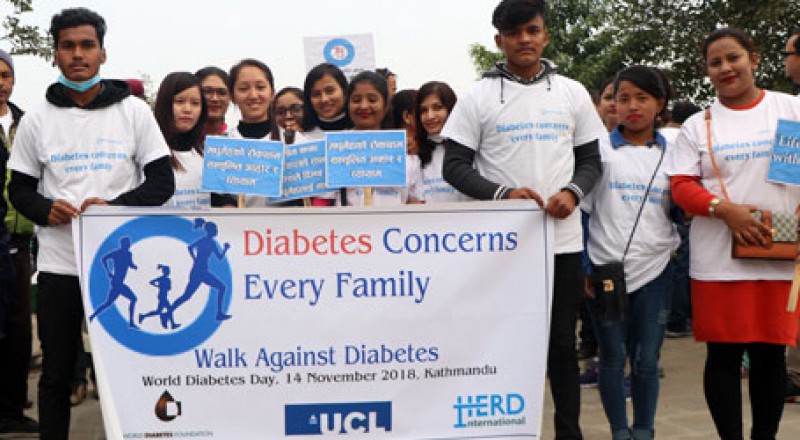


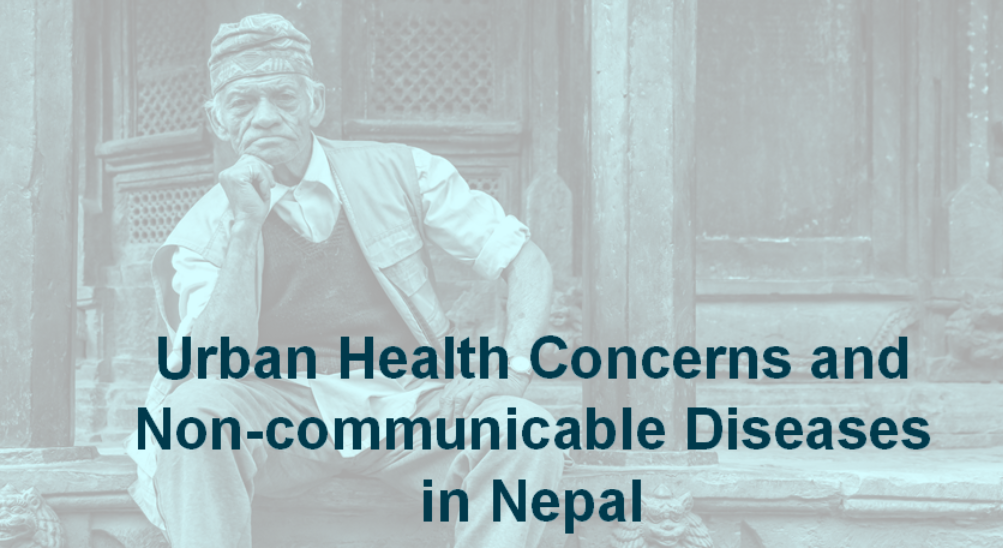
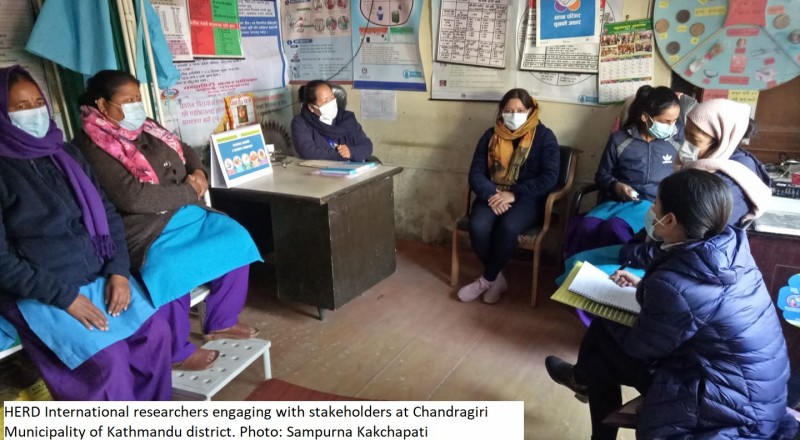

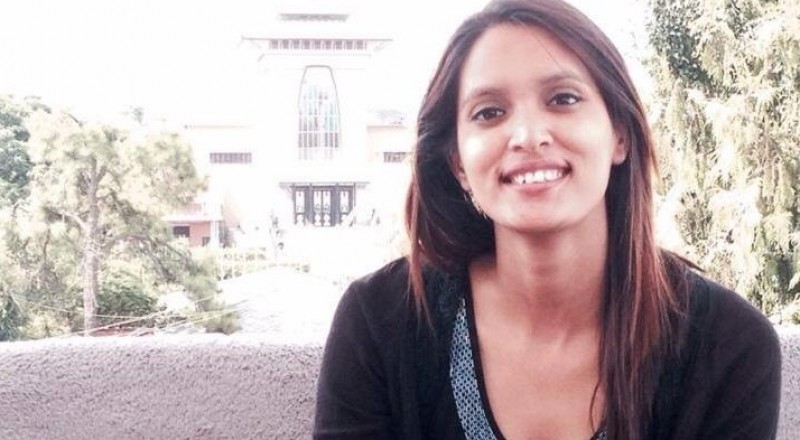
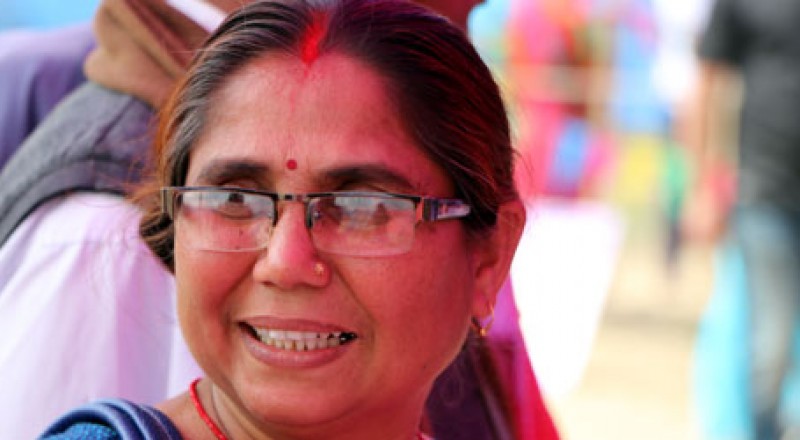


Comments (0)
No comments found.